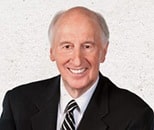God said… God called…God blessed… (Genesis 1)
It was over 20 years ago, but the moment was never to be forgotten. It happened one afternoon, right after I drove away from the church, having just left my office. I had just pulled out of the parking lot and was headed down the street when, directly ahead of me, another driver did a bizarre stunt with his vehicle, nearly causing a horrible collision. I was so angry at the craziness of it that there, alone in my car, I hollered out in fury and frustration (get ready, folks, you won’t like this): “You idiot!”
Not being a profane person, I saw the words as only indicating my indignation at the recklessness of the driver. With my window closed, I supposed my comment was somehow an allowable venting of my rancor. However, I immediately discovered that God didn’t agree with my self-serving excuse, as the Holy Spirit gripped my soul with this chastening, saying:
“I have created no one—no human being—by that description.”
I drove on, but I felt a wound within, because I knew I had grieved the heart of God. I continued meditating on my failure, inquiring within of my surprise, and asking myself, “What difference did my words make? Nobody else was in the car, and that driver didn’t hear me.”
But the answer was obvious. The Lord heard me! And He made it clear that those words of mine had the power to give place to an attitude—an attitude set loose in the spiritual realm and with a power to shape something warped inside of me if I allowed that kind of thing! So I repented. Quickly, I responded, “Lord, forgive me for saying that about that man. Forgive me for failing to recognize how mighty is the power that You, Lord, have placed within Your child’s tongue. Let me always be careful of what I permit to be transmitted through it.”
Our words, often so recklessly spoken, carry more weight than most of us can imagine. In fact, hardly a week goes by in which you and I don’t read or hear about some celebrity, elected official, or admired athlete whose words have gotten them into hot water. But the matter goes far deeper than being “politically correct.” The power of words is fundamental to life—and can be instrumental in causing things to die.
Few subjects are more intrinsic to life in Christ and the Kingdom of God than the power of words: “In the beginning was the Word, and the Word was with God, and the Word was God” (John 1:1). The Bible has a great deal to say about the Lord’s words, as well as about the power of the words that you and I speak. We are promised that “the tongue of the wise promotes health,” that “whoever guards his mouth keeps his soul from troubles,” and that “those who deal truthfully are God’s delight” (Proverbs 12:18; 21:23; 12:22). And as we grow in discipleship, God continues to refine us (as He did with me that day) regarding our tongue—a “little member that…is set on fire by hell” (James 3:5,6). I’m grateful for His chastening, for God’s Word also says He chastens those He loves (see Hebrews 12:6).
Everything that exists came about by words
It’s a phenomenal truth: everything that exists came about by words.
In the most deterministic chapter in the Bible pertaining to our world—chapter one of the book of Genesis—we read that God spoke, and all things came into being: “God said…and it was so…God called…and it was good…Then God blessed…” (vv. 3,7,10,28). It is the verbal activity of Almighty God that literally decrees our world’s existence.
Even more remarkable, the One whose words were so awesome also gave you and me the same capacity—that the words we speak would be creative, dynamic, and deterministic in the world around us. Indeed, God declared that humankind be made in His image, according to His likeness, and we can see that in three ways: by our will, our words, and our eternal future.
First and foremost, God gave us a tremendous capacity of will. No matter how weak your will may be, it is still as decisive as God’s. God makes a decision, it stands. You make a decision, it stands. God’s good will toward us never falters. But given free will and unaware of their redemptive role on this earth, people make casual or even rebellious choices, as well as off-the-cuff remarks, which brings us to a second thing:
You and I have the power of words. When God speaks, “it is so.” The Bible says that no word that you or I speak is without significance (see 1 Corinthians 14:10). Our words count big time—and that might be a good thing or bad thing, depending on the words we choose.
The third way God has made us in His image is that we are eternal beings. The difference is that while God is infinitely past as well as infinitely future, you and I had a beginning point. From conception in our mother’s womb, we began, and ever we shall be. Along with that eternal future comes this capacity to choose by our will and to decree by our words. And our words, like God’s, can do the same things: They can edify, identify, and multiply.
Edification: “God said…”
The word “edify” is used in the Bible to describe anything that builds up. Here in Genesis, when God speaks, things come into existence. As you and I take in the Word of God, we are edified—the spiritual structure of our being is built up and strengthened. What was non-existent in us, by reason of our death in sin, has now been brought to life in Jesus, and He builds on that. What was broken down by our past, Jesus rebuilds. And this building and rebuilding process is edified by the Word of God.
There are also words the Lord gives to you and me that we speak to one another, words by which we edify one another. For me, it’s not only teaching to build people up in their spiritual life, but it’s also in the way I speak to my wife and kids that hopefully builds them up.
Edification also has to do with what we cultivate in one another. It’s not difficult to see the difference between people who were nurtured in their childhood with words of correction balanced with love and those who were belittled by the words spoken to them. Whatever was built in us—be it beautiful or distorted—is directly related to the power of words.
Identification: “God called…”
For each thing God made, He gave identification. Identification is not in terms of what you and I observe, but rather in the way that we designate.
For example, bondage in a life is often the result of the way human words identified a person and how that person reacted to them. If the words said to you by a parent, sibling, teacher, or friend were lovely, they may have given you a sense of self-worth (or caused you to become vain). If the words were deprecating, you may have grown up feeling inadequate (or defiant to prove them wrong). The power of words to identify is awesome…and sometimes frightening. Let me illustrate.
I was 14 years old, and I was furious at my father. While it was uncharacteristic of my dad to provoke his son to wrath, at that moment I deemed what he’d told me to do absolutely unfair. Seething with anger, I went downstairs to the basement of our house and walked over to the work bench, pounding on it, and spewed my anger in a few words of fury. Instantly, my body shook! My young soul was startled, realizing that as I spoke those words, something was shattering inside me. I was shocked by what I felt. Trembling, I backed away from the bench and began to weep. “God, I’m sorry,” I said. “It was wrong. I’ve been a bad boy.” I confessed my sin, realizing I had not only given place to anger, I had dishonored my father (though no one knew it but God and me).
The implication is this: What is spoken becomes that.
I was sitting with a man who described a serious problem he was having with his business. He was a high-quality but earthy kind of guy. As he talked about the problem and his frustration, he said, “You know, this damned thing…” He went on talking for several more minutes, and he used that expression three times. When he got done, I said, “You know I’m not prudish, and you haven’t offended me, but I want to ask you, do you realize that in talking about this problem, three times you referred to it as ‘damned’?” He said he hadn’t even realized he was using that word and started to apologize, but I stopped him.
“This isn’t a matter of personal offense,” I said. “I love you; you’re my brother. We’re talking about the problem you’re having, and I’m going to tell you why it’s a problem—because of what you’ve done to it by your speech. What you have is the result of your own lips by cursing the problem instead of invoking the blessing of God on it.”
Loved ones, more bondage in our lives than we know is related to the way we talk. We don’t speak it into being, but when it comes on us as a direct assault, we accept it and affirm its presence by our words. Or as that man did, we damn the frustration of it rather than invoke God’s blessing on it.
Multiplication: “God blessed…”
Which brings us to the third thing God’s words do. The Bible says, “God blessed,” and everything He blesses multiplies what is characteristic of Him. It multiplies life. This is what you and I are called to do: to edify, identify, and multiply in the way God does. To identify things not only for what they truly are, but also for what they can become.
God has endowed us with the power to give life by two means: biologically and verbally. We understand the power of our sexual capacity to beget a life. But we’re also called to accountability for the power of our mouths to produce death—or life (see Proverbs 18:21).
“For every idle word men may speak, they will give account of it in the day of judgment. For by your words you will be justified, and by your words you will be condemned.” (Matthew 12:36,37)
Jesus tells us that in the day of judgment, everyone will stand before God to give account for the words they’ve spoken unless those words have been brought under the blood of Jesus Christ—the one power that can disintegrate their bondage. As we do that, and as God forgives us, we then stand without that record of our words or our deeds anymore. (Can you join me in saying, “Hallelujah!” for that!)
Furthermore, the “day of judgment” is not only the day in which there is punishment for evil, but also judgment conveys the idea of a corresponding liberation. As judgment breaks the yoke of sin’s bondage, there comes deliverance and the release of God’s freedom. And there is a very practical way for you and me to apply that.
Consider this. I was in our basement at the work bench, and immediately the words I spoke about my father came under judgment from God, and my heart was smitten. To God’s praise, I quickly brought that back into divine order saying, “Lord, I’m sorry for what I said. I will not let that word prevail, and I will never allow that habit to breed in me.” A 14-year-old kid who, in fury, curses for the first time is headed for a lifetime of cursing things to the point he doesn’t even know he’s doing it, like that businessman who was cluttering up his private world every time he spoke.
I encourage people that as the Lord brings to your mind words you’ve said, write them down, not to accumulate them as a point of guilt, but to confess over each one: “Lord, I bring this before You. Holy Spirit, what do You want me to say besides ‘I’m sorry; forgive me’ to dismantle the impact of this thing that went out of my mouth?”
Of course, some things can’t be undone right away. You may be living through the pain of what was produced by things said years ago to your kids. Write that down, confess it, receive God’s forgiveness, and then, with understanding, begin to intercede with discernment for the dismantling of what your words created.
This day, dear ones, let us dedicate ourselves to speaking God’s word, not only that of the Scriptures, but also words of wisdom, healing, and life to others—words that edify richly, identify beautifully; words that multiply health and wholeness. Let us open to the Holy Spirit’s revelation to our hearts and minds any words of the past that need to be dealt with, and anything of the present that needs to be headed off. And let us take the lamp of God’s Word to light the way for our future.
In these ways, you and I will find the real power of words.
Copyright 2011 by Jack W. Hayford, Jack Hayford Ministries
Our gift of this article by Pastor Jack Hayford is made possible by your gracious support of the ministry. Partner with us online or call toll free 1-800-776-8180 to donate. (within the U.S..)



